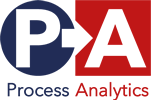Looking for a master project? Are you interested in topics like Process Mining, Process Querying and Data extraction?. Take a look at our proposals below. If you are interested, do not hesitate to contact Eduardo González or Hajo Reijers
Generation of business reports by means of a process oriented query language
Nowadays, most reports are generated on the basis of complex SQL queries built by experts. The complexity of these queries makes them difficult to maintain. Currently, a new trend is emerging in the Process Querying field to develop techniques and languages that allow to query business process information in a smarter way. In [1], a new Process querying language is proposed, combining data and process perspectives using the meta-model presented in [2]. The purpose of this master project would be to evaluate whether the most common business questions used in reports can be easily expressed using this new language, in this way improving maintainability and adaptability of the code. In addition, a collection of new questions will be generated in order to provide in-depth insights about the business process.
Performance improvement of a process oriented query language
As the volume of data and the size of processes increase, their analysis becomes more tedious and complex. As a result, in the Process Mining field, a new trend is emerging. This trend, called Process Querying, allows to make queries on collections of models and execution data of business processes. As an example, in [1], the authors propose a new query language for business process information. This language, based on the meta-model proposed in [2], allows to query both data and process perspectives on business processes in an intuitive and easy way. The computational performance of this approach could be improved (it was not one of the main goals when developing it). For this reason, this master project focuses on performance optimization of this query language making use of caching, indexing, smart query transformation, and other techniques. In addition, a benchmark comparison will be made with other process oriented languages, and an analysis on the trade-offs of each of them will be made.
References
| [1] | E. González López de Murillas, Hajo A. Reijers, Wil M.P. van der Aalst, “Everything You Always Wanted to Know About Your Process, But Did Not Know How To Ask”, 2016 – PQ 2016, 1st International Workshop on Process Querying, Rio de Janeiro, Brasil. | |
| [2] | E. González López de Murillas, Hajo A. Reijers, Wil M.P. van der Aalst, “Connecting Databases with Process Mining: A Meta Model and Toolset”, 2016 – BPMDS 2016, 17th International Conference, Ljubljana, Slovenia. |
